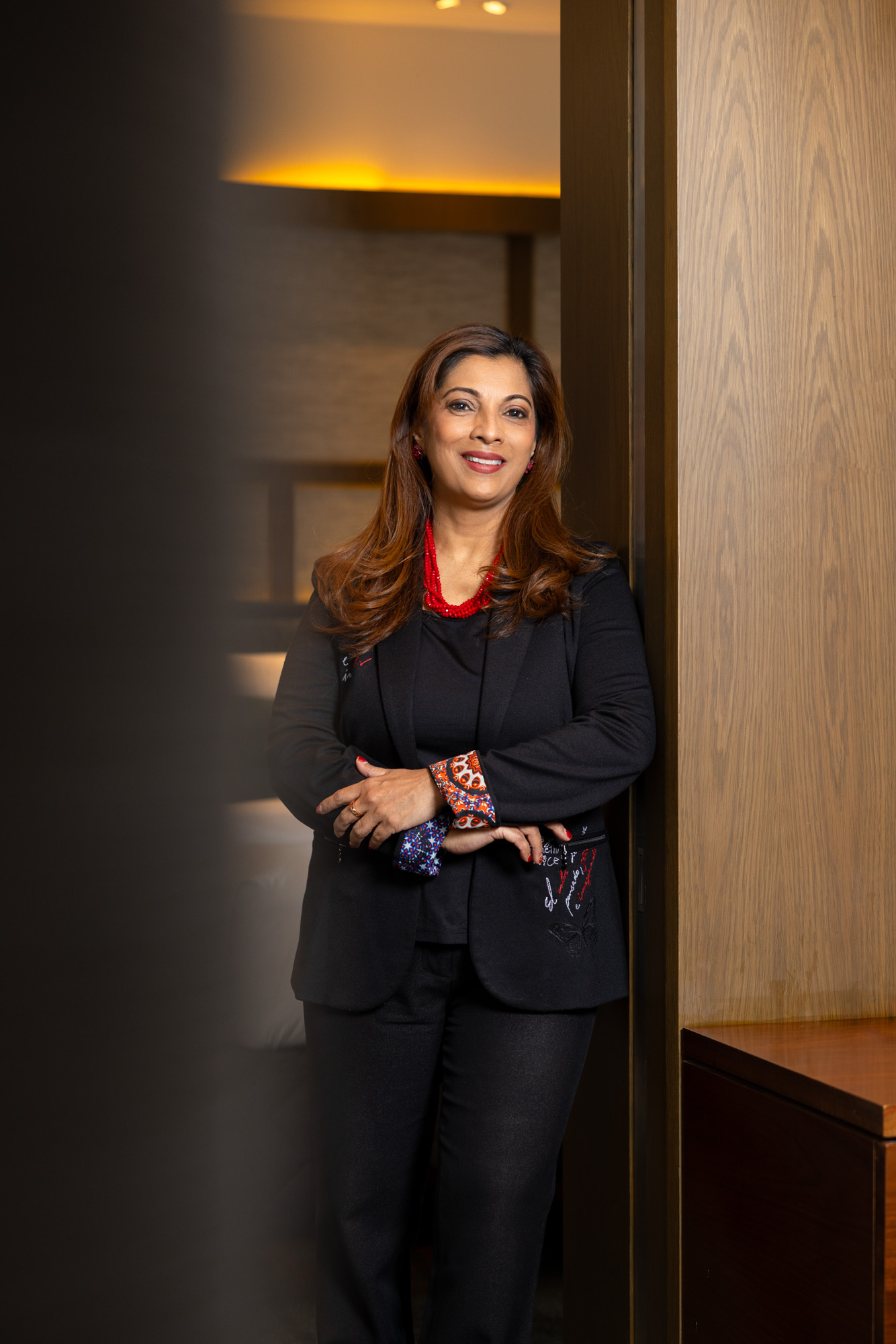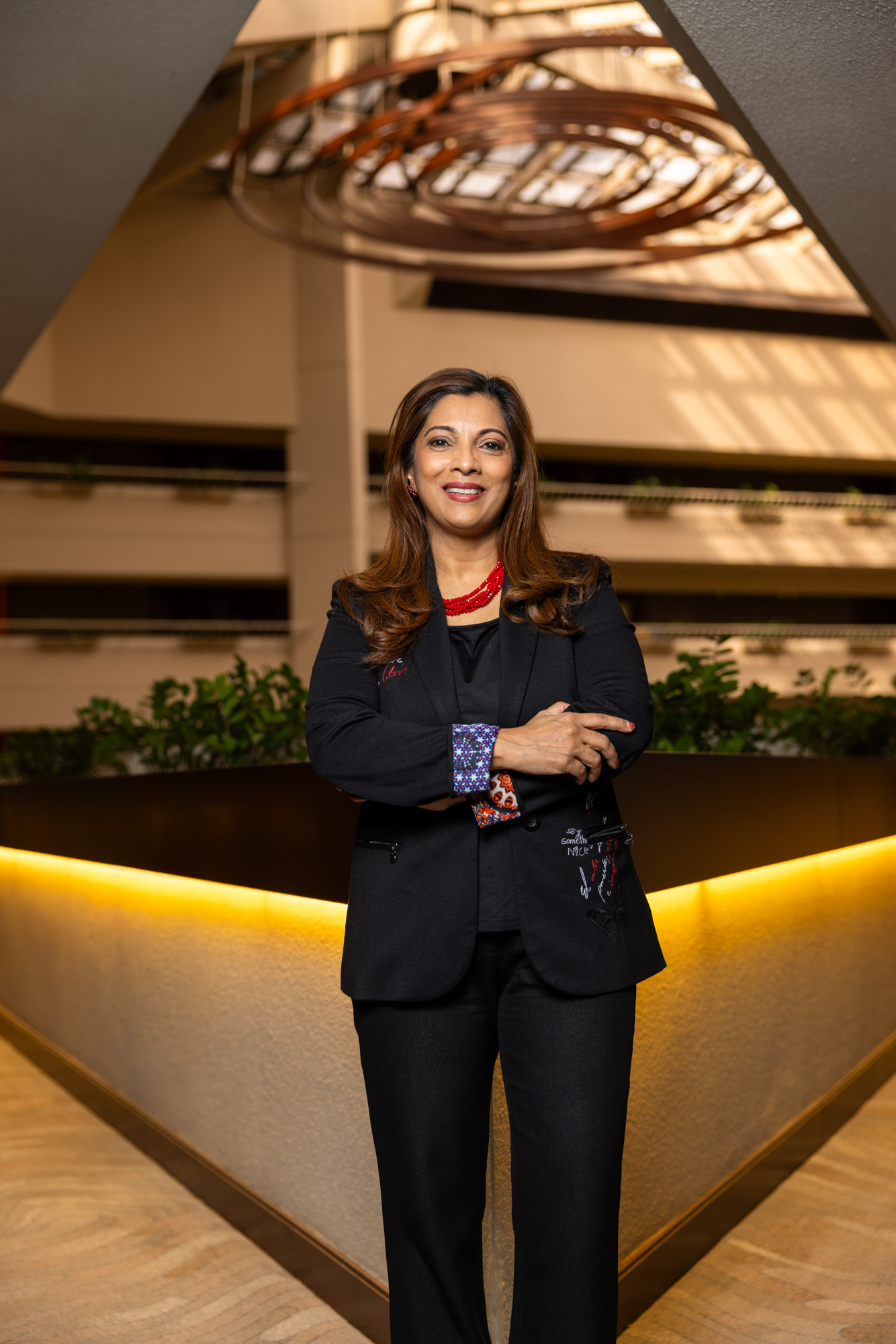At PHIST 2025 in Phuket, amid a sea of sustainability leaders, a petite figure in an elegant royal blue pantsuit lit up the packed room. Dr. Nisha Abu Bakar has that rare kind of presence: Warm and magnetic, Singapore’s very own “Momala” to America’s Kamala Harris, if you will.
She’s the sort of woman who disarms you with a smile and then drops a truth bomb about the global tourism economy, because tourism isn’t all leisure to her. It’s livelihoods, dignity, and shared humanity. And when she speaks, people lean in.
A tourism consultant, practitioner, academic, and corporate trainer with 25 years of experience under her belt, Dr. Nisha is the founder of Elevated Consultancy & Training, where she helps governments and organisations – from Bhutan and Indonesia to South Africa – build long-term, sustainable tourism strategies.
Along the way, she’s picked up a few accolades, including TEDx speaker and Asia’s Most Inspiring Woman in Travel 2024, courtesy of The Inspiring Women in Travel Asia (IWTA) Awards. But during the pandemic, when the world ground to a halt, she began her most personal and purposeful chapter yet, thanks to the advice from one of her coaches.
“He said to me, ‘Stop trying to do everything. You don’t need it. What you need, Nisha, is focus, not frenzy’, and that was something that really struck me,” she shares.
For someone so driven and high-achieving – gripped with the fear of missing out and the fear of being forgotten – it was a timely wake-up call. From that point on, she pivoted from doing everything to focusing on doing what she did best; that self-awareness surely marks her as a true leader.
“I became more intentional about everything – about who I wanted to speak to, about my speaking engagements, about the work that I wanted to do,” she explains.
(Related: No Rider Left Behind: The Passion and People Power Behind Journ)

- A PANDEMIC PAUSE TURNED PURPOSE
- WHEN MENTORSHIP BECOMES METAMORPHOSIS
- FROM SUSTAINABILITY TO RENEGERATION
- THE NEXT CHAPTER
A Pandemic Pause Turned Purpose
When the world stopped, Dr. Nisha started. Her coach’s advice took root then: She shifted from consulting for nations to cultivating women.
Recognising a gap in the hospitality industry – the lack of female voices at the policy level – she sought to fill it. World Women Tourism (WWT) was born. The movement that began as an online support network for women in tourism and hospitality has since evolved into a global platform for mentorship, research, and leadership.
Her Asian Women Leadership Program (AWLP), a flagship initiative under WWT, was designed to help women across the region embrace leadership on their own terms, not by imitating others, but by owning their unique voice and values.
“My focus was on Asian women, because there’s already a lot happening in the Western world,” she says, pointing to how a lot of leadership frameworks are Western-centric and do not resonate with Asian women.
At the same time, many of those models are also male-centric, valorising assertiveness and self-promotion. Her AWLP flips the script, honouring women’s innate strengths of building trust, reading a room, and creating consensus.
After the pandemic, DEI (Diversity, Equity and Inclusion) became a key priority in the tourism industry. And more and more hotels started to embrace the GSTC’s (Global Sustainable Tourism Council) criteria, especially SDG 5 (the United Nations' fifth Sustainable Development Goal, which aims to achieve gender equality and empower all women and girls).
“So I started speaking about DEI, going into organisations to talk about how they could relook their corporate policies.”
Once she gained a voice, platform, and network, she felt a responsibility to use them for impact.

"Sustainability often comes from a scarcity mindset – doing less harm, using less, limiting ourselves. But regeneration is about expanding what’s possible."
- A PANDEMIC PAUSE TURNED PURPOSE
- WHEN MENTORSHIP BECOMES METAMORPHOSIS
- FROM SUSTAINABILITY TO RENEGERATION
- THE NEXT CHAPTER
When Mentorship Becomes Metamorphosis
While Dr. Nisha’s mentorship philosophy has transformed numerous lives, one story remains especially close to her heart.
One of her mentees, India-born Prachi Thakur, approached her at the tender age of 23 for guidance. “She wanted to abandon her PhD and had the lowest self-esteem [I had ever seen].
She dared not speak. But when we gave her the platform [to do so] in our global webinars, she began speaking.”
Today, four years on, Dr. Prachi is paying it forward by being a lecturer at the Sunway University in Malaysia, as well as an international TEDx speaker and advisor to the UNWTO – a transformation Dr. Nisha attributes to empowerment, not instruction.
“I’m not glorifying what I did,” she says. “But when you watch these things happen, you realise there’s meaning behind all this work.”
Her Women We Watch podcast, which ran for three seasons from 2021 to 2023, extends that spirit. It spotlit raw, intimate conversations with women who are shaping the tourism landscape from the ground up.
- A PANDEMIC PAUSE TURNED PURPOSE
- WHEN MENTORSHIP BECOMES METAMORPHOSIS
- FROM SUSTAINABILITY TO RENEGERATION
- THE NEXT CHAPTER
From Sustainability to Renegeration

As economies continued reeling from the aftershocks of the pandemic, Dr. Nisha wasn’t content to simply observe the industry recover. She wanted to rethink how the industry could be rebuilt, and who should lead the charge.
Bhutan became the natural prototype; after all, it was a nation she had worked with for the better part of a decade. That vision eventually took shape as the Bhutan Integrated Tourism Master Plan 2025–2034, built on four pillars: Collaboration, regeneration, regional balance, and year-round tourism to transform the kingdom’s travel landscape.
If sustainability is about doing less harm, then regeneration is about creating more good. This “abundance mindset” is something she applies to both tourism and human potential.
“Sustainability often comes from a scarcity mindset – doing less harm, using less, limiting ourselves,” she explains. “But regeneration is about expanding what’s possible.” In her view, every hotelier, investor, or operator has the power to create ripple effects of good: New jobs, thriving ecosystems, and flourishing communities. “It’s not about reducing choices,” she says, “it’s about expanding them – and asking, how much more can we give back?”
And who better understands that than women who’ve long held space quietly in the background? The philosophy is simple yet profound: When women thrive, whole communities rise. In the same vein, regenerative tourism goes beyond repairing what’s broken; it’s about restoring harmony. And this is what women, with their innate empathy and sense of stewardship, seem to grasp instinctively.
- A PANDEMIC PAUSE TURNED PURPOSE
- WHEN MENTORSHIP BECOMES METAMORPHOSIS
- FROM SUSTAINABILITY TO RENEGERATION
- THE NEXT CHAPTER
The Next Chapter
Now, her focus is turning to Brunei, where she’s found a new sense of purpose.
“I think Brunei is now my purpose,” she says, eyes lighting up. “I really like the communities I’ve met – especially the Iban women in the Long Houses. They’re incredible, but they’re at the verge of losing their traditions.”
Her goal is to rally collaborators and partners to preserve those fragile cultural ecosystems before they fade. “Funding is there,” she explains, “but we need coordination and care. I want to help ensure they don’t lose those small, beautiful communities.”
It’s a project close to her heart, and one that will unfold in 2026, continuing her lifelong pursuit of empowerment through regeneration.















 Back
Back
